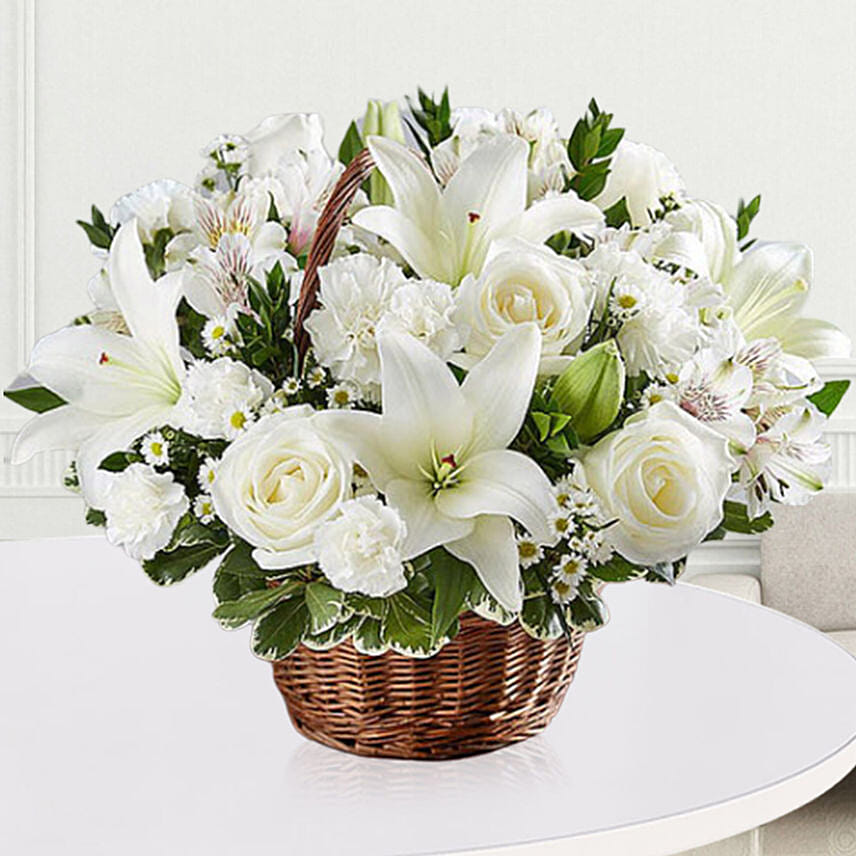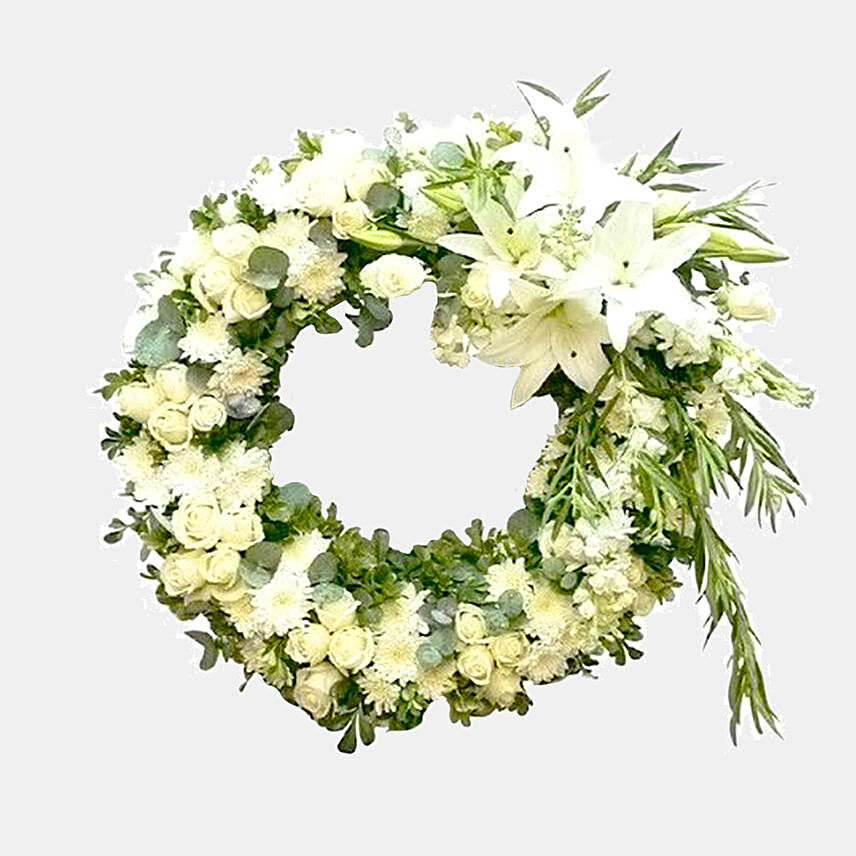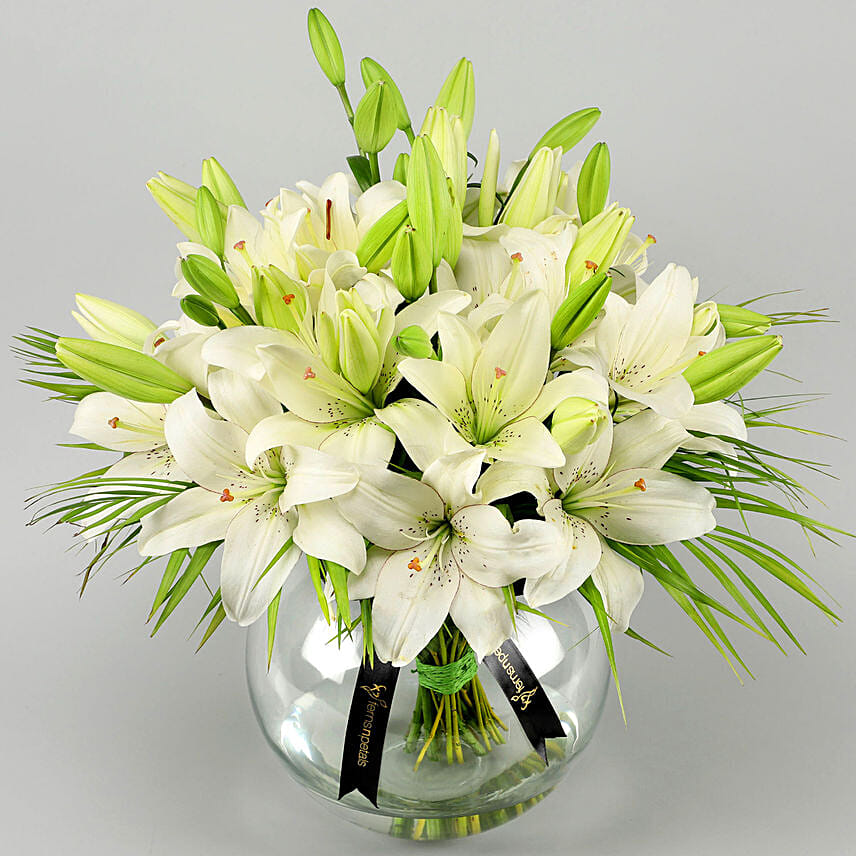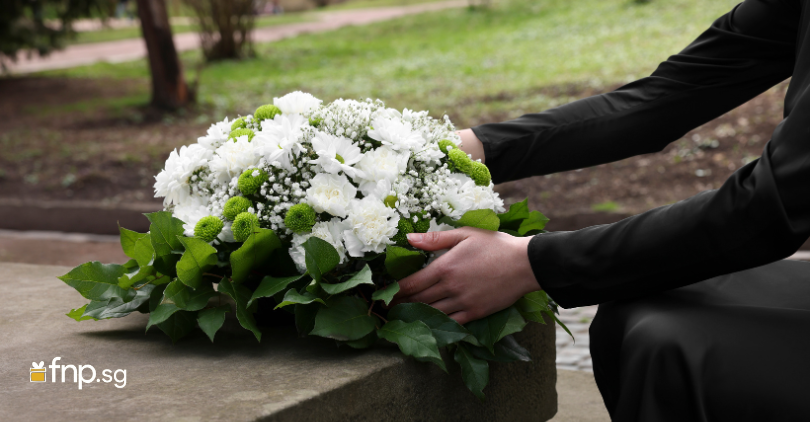Understanding the Meaning Behind Sympathy Flowers
When it comes to selecting sympathy flowers Singapore, understanding the meaning behind each bloom is key. Flowers are not just beautiful; they symbolise emotions and convey a deep message. Here are a few popular flowers commonly used in sympathy bouquets:- Lilies: Often seen at funerals, lilies are symbols of purity and peace. Their soft fragrance and elegant appearance make them a comforting choice for any sympathy arrangement.
- Roses: While red roses represent love, white roses symbolise innocence and reverence. A bouquet of white roses can convey deep respect and sympathy.
- Chrysanthemums: In many cultures, chrysanthemums are the flower of choice for mourning. They represent honesty and truth, making them a fitting tribute to a loved one.
- Carnations: Carnations, especially white or pink, convey love and admiration, making them a beautiful choice to honour someone’s memory.

Source: FNP.sg
When choosing your sympathy flowers, also consider the colour of the flowers. Soft hues like whites, pastels, and purples are often used to convey respect and sympathy, while deep reds can indicate love and admiration for the deceased.Sympathy Bouquet Ideas for Different Situations
The right sympathy bouquet can vary depending on the situation. Whether you’re sending flowers for a funeral service or to a grieving family at home, choosing the appropriate arrangement is essential. Here are a few sympathy bouquet ideas for different scenarios:- Funeral Services: For funeral services, large and formal arrangements like standing sprays, wreaths, or casket sprays are often appropriate. These floral displays are meant to honour the life of the deceased and offer comfort to the family.
- Home Deliveries: If you’re sending condolence flowers to someone’s home, smaller arrangements or potted plants can be a wonderful choice. Choose low-maintenance flowers like lilies or roses in a vase that the recipient can keep for a longer time.
- Sympathy Bouquets for Close Friends and Family: If you’re sending flowers to someone very close, personalising your bouquet to reflect the deceased’s favourite flowers or colours can make the gesture even more meaningful. For example, if the person loved gardenias or peonies, choosing those specific flowers can bring added comfort.

Source: FNP.sg
How to Write a Thoughtful Sympathy Card
Along with your sympathy bouquet, a heartfelt message in a condolence card can go a long way in showing your support. Writing a sympathy message can be difficult, especially if you're unsure of what to say. Here are some tips to help guide you:- Keep it Simple: It’s important to keep the message short, sincere, and respectful. Something as simple as “My deepest condolences” or “I am so sorry for your loss” can express your feelings in a heartfelt way.
- Express Your Support: Let the recipient know that you’re there for them, whether it’s for support, a listening ear, or practical help during their time of need. A message like, “If you need anything, I’m here for you,” can provide a comforting sense of support.
- Personalise the Message: If you knew the deceased personally, consider sharing a fond memory or story that highlights their qualities or the positive impact they had on you. For example, “I will always remember [name] for their kindness and sense of humour.”

Source: Freepik
Cultural Sensitivity When Sending Sympathy Flowers in Singapore
Singapore is a diverse country, with different ethnic and religious groups, each with their own mourning traditions. When sending sympathy flowers Singapore, it’s important to be mindful of the recipient’s culture and beliefs. For example:- Chinese Culture: In Chinese traditions, white flowers, especially lilies and chrysanthemums, are considered appropriate as they symbolise mourning. Red flowers should be avoided as they represent joy and happiness, which are not suitable for such a solemn occasion.
- Malay Culture: In Malay culture, Islamic funeral traditions may have specific flower preferences. It’s important to be sensitive and respectful of these customs.
- Indian Culture: Marigolds, jasmine, and other vibrant flowers are often used in Indian funerals to honour the deceased. Depending on the family’s preferences, these flowers can be a meaningful choice.

Source: FNP.sg





